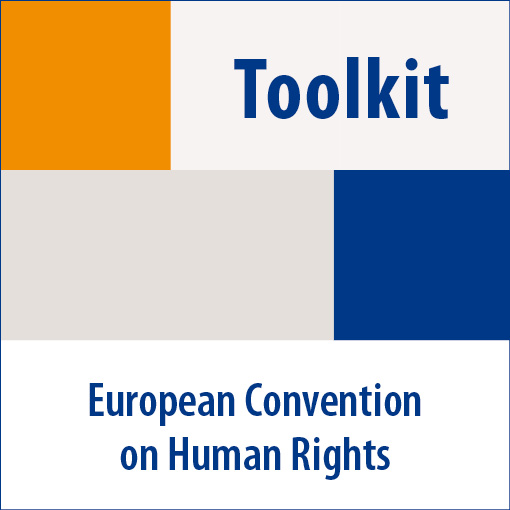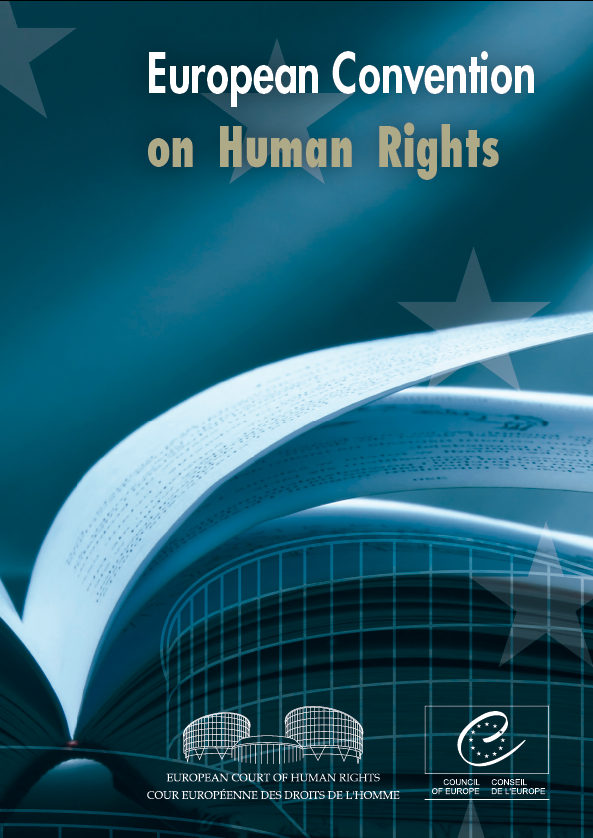Some definitions
Correspondence
"Correspondence" covers not only letters (especially from prisoners) but telephone conversations, emails and texts.
Criminal
The notion of "criminal" has a specific meaning under the Convention and may extend to disciplinary, administrative or fiscal proceedings if they may lead to punishment of the person concerned.
Degrading treatment
"Degrading treatment" involves humiliation and debasement as opposed to physical and mental suffering. As with inhuman treatment, it does not have to be deliberate.
Discrimination
Discrimination is treating people in analogous situations differently, or people in different situations alike, without objective and reasonable justification. So, not all differential treatment is discrimination.
Indirect discrimination
Indirect discrimination is where a generally applicable law or policy has a disproportionately adverse effect on members of a particular group, even if there is no discriminatory intent.
Expulsion
Expulsion occurs where a person is obliged permanently to leave the territory of a State of which he or she is a national without being left the possibility of returning later. Whether someone is a "national" for the purpose of this provision will be determined by the national law of the State concerned. Within the meaning of the Convention, expulsion does not include extradition.
Family life
"Family life" similarly to private life is a wide concept under the Convention, going well beyond a traditional married couple with children. It covers unmarried couples (provided there is evidence of a settled long-term relationship); same sex couples and transsexuals; near relatives such as grandparents and grandchildren; and siblings. The issue is does evidence of close personal ties exist? It has often been applied in deportation cases to allow persons with family ties to remain even where they have committed crimes or overstayed their entry permission.
Forced or compulsory labour
"Forced or compulsory labour" is where a person is required to work or give service under the threat of a penalty. Paragraph 3 of Article 4 lists three situations which are not to be considered forced or compulsory labour:
- (a) work done by prisoners in lawful detention;
- (b) military service (or its recognised equivalent);
- (c) work that is part of normal civic obligations (e.g. jury duty).
Home
"Home" requires a victim to show sufficient and continuous links with the place where they live, but it need not be occupied by them at all times; it can be temporary (like a caravan) or business premises, and sometimes occupied illegally or in contravention of a planning decision.
Inhuman treatment
"Inhuman treatment" must reach a minimum level of severity, and "cause either actual bodily harm or intense mental suffering". It need not be deliberate nor inflicted for a purpose. In the typical case of injuries in custody, where a person is in good health before arrest or detention and is proved to be injured after it, the burden of proof is on the authorities to show force was not used, or was not excessive, or was justified by the victim's own conduct. Undue restraint during arrest or of a psychiatric patient can also amount to inhuman treatment.
Lawful detention
A lawful detention means not only that it must conform to domestic law and procedure which are both accessible and foreseeable, but also the application of that law must conform to the Convention, i.e. be for a purpose sanctioned in sub-paragraphs a to f of Article 5, paragraph 1.
Loss or deprivation of liberty
Loss of liberty has two elements: confinement in a particular place for a non-negligible length of time, and lack of consent by the detainee.
It does not require being physically locked up. At the same time, some instances of control of large numbers of people for safety reasons do not amount to deprivation of liberty under Article 5 of the Convention, for example, control of crowds at sporting events or on motorways following an accident. The European Court of Human Rights has also found, on the particular facts, that Article 5 did not apply when demonstrators, including some violent elements, were for public safety reasons confined by a police cordon in a narrow city area for some hours (Austin and others v. the United Kingdom).
Negative obligations
Negative obligations place a duty on State authorities to refrain from acting in a way that unjustifiably interferes with Convention rights. Most of the Convention rights are framed in this way.
Positive obligations
Positive obligations place a duty on State authorities to take active steps in order to safeguard Convention rights. In most cases these are not stated explicitly in the text but have been implied into it by the Court.
Private life
"Private life" is much wider than privacy (which is mainly about rights to confidentiality and seclusion). It covers, among other things, personal identity; sexual orientation and activity; gender identity; data protection; freedom from noise or toxic emissions; and freedom from harassment.
Procedural obligation to investigate
The procedural obligation to investigate was introduced by the European Court of Human Rights through its case law. In case of death, the investigation should be set in motion automatically by the authorities. It must be carried out promptly, effectively and publicly, and independently of the agency which used the lethal force concerned. Investigation is also required when death occurs as a result of the acts of private individuals. Responsibility for such investigation will normally be taken at senior level but officials involved at working level need to prepare for this possibility, for example, by keeping records of information received indicating a risk to life, or details of the watch kept on suicide risks in detention, etc., and they must co-operate fully and honestly with any investigation, which otherwise might fall below the standards the Convention requires.
As with the right to life, where there is an arguable breach of Article 3, there is an obligation to carry out an independent, effective and prompt investigation. For example, injuries need to be medically examined as soon as possible to establish how they occurred. Police and other officials need to keep good and accurate records of their actions, and if accused of ill-treatment, co-operate fully with any investigation.
A positive obligation to investigate may also arise where there is an arguable breach of Article 4 of the Convention, especially in cases of human trafficking and domestic servitude. The investigation must satisfy the same requirements of openness, effectiveness and independence detailed above on Articles 2 and 3.
Qualified right
Qualified rights are rights which may be interfered with in order to protect the rights of another or the wider public interest, e.g. the right to private and family life, Article 8.
Unqualified right
Unqualified rights are rights which cannot be balanced against the needs of other individuals or against any general public interest. They may be subject to specific exceptions, e.g. the right not to be deprived of liberty, Article 5; or to none at all, when they are called absolute rights, e.g. freedom from torture, Article 3.
Servitude
In a case where a young girl brought in from her native country was required to work long hours without payment for a family and to live in their house with no possibility of changing her circumstances, the European Court of Human Rights found that she was not a slave (because the family did not "own" her) but she was in servitude (Siliadin v. France) because her place of residence and her work were forced on her against her will.
Slavery
Slavery means "the status or condition of a person over whom any or all of the powers attaching to the rights of ownership are exercised". It has to be distinguished from servitude.
Torture
Torture has been defined by the European Court of Human Rights as "deliberate inhuman treatment causing very serious and cruel suffering". The degree of suffering is the main difference between torture and inhuman treatment, but it also has to be deliberate, for example, to extract information or to intimidate. Examples of acts found by the Court to amount to torture include rape, threats of harm to family, being kept blindfolded and mock executions. The suffering can be mental as well as physical. The threshold for torture is evolving: what was not considered torture 30 years ago may be so now, as standards rise (Selmouni v. France, which concerned a suspect subjected to physical blows). The same is true of inhuman treatment.

Convention rights and issues
I need to consider in some concrete situations
Reflexes to adopt
Do you touch on any of the Convention rights in your work?



